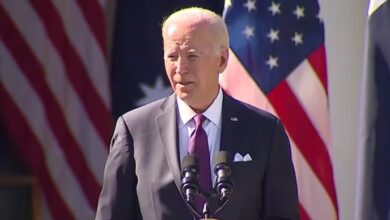China Alerts Consulting Firms To Potential Espionage Threat
Taipei: According to Voice of America (VOA), China’s Ministry of State Security has issued a new alert, highlighting the continuous danger presented by foreign espionage organisations that masquerade as consultancy businesses and are allegedly seeking to get state secrets.

A six-minute film that was posted on the ministry’s official WeChat social media account describes a real-life incident in which it is claimed that foreign espionage agencies set up a consultancy business to steal confidential data from a Chinese company looking for foreign investment.
China’s Aspiration For Transparency
According to VOA, this revelation comes at the same time as Chinese President Xi Jinping met with American CEOs recently in an effort to allay fears and reaffirm China’s commitment to corporate openness in the face of economic uncertainty and authoritarian government signals.
Due to changing supply chains and China’s execution of strict anti-espionage measures, such as departure restrictions and crackdowns on consultancy and due diligence companies, foreign investment in China has decreased over the last year. Simultaneously, since launching its social media account last year, the Ministry of State Security has released four films as part of an increased effort to inform the public about foreign espionage efforts.
Video Highlights
The newest film, which is fashioned like a spy thriller, aims to explain how espionage operations are planned and carried out by consulting firms. It tells the story of a Chinese corporate executive who was questioned by a representative of a consulting firm. The CEO was asked private questions about the company’s financial information, its product specifications, and its military uses.
The ministry stated that these consulting firms are partners with foreign spy agencies seeking to penetrate China’s vital industries. “The seemingly normal investigations conducted by consulting firms are in fact attempts to illegally acquire our commercial secrets and efforts to suppress our advantageous industries,” the ministry wrote.
Despite being mainly intended for a Chinese audience, analysts surmise that the ultimate goal is to make Chinese residents more watchful, especially those who work for international companies.
According to Dennis Wilder, a former US national security officer, these kinds of efforts may have a chilling effect and increase anxieties among Chinese citizens, particularly those who work with foreign companies.
Which Businesses Are Seen as Threatened?
In the year before, a number of American enterprises operating in China were raided by Chinese authorities, resulting in the detention of several Chinese workers. Prominent companies, including Mintz Group, Capvision, and Bain & Company, are among those impacted.
Although the emphasis is still on Chinese nationals, Wilder argues that international companies interested in entering the Chinese market would unavoidably be shadowed by Beijing’s strict security protocols.
In a video interview with VOA, Wilder said, “They have to understand what their counterparts in China are all about, but if they can’t conduct due diligence, they won’t invest in China.”
Reinvestment in China
Results from a 2023 study by international business associations, which show an increasing trend among international corporations to pull out of China, support these views. Reports show that American and European businesses are becoming less confident, with a sizable percentage of them reevaluating
China is becoming a more popular place to invest because of its growing operational difficulties.
Analysts point to Beijing’s twin goal of preserving national interests and boosting trust from overseas investors despite their waning confidence.
Hung Chin-fu, a political scientist at National Cheng Kung University in Taiwan, stated, “Beijing believes that while they try to attract more foreign businesses to invest in China, they also should ensure key national interests, such as core data or key infrastructure, won’t be easily obtained by foreign businesses.”
A Crucial Time For China
Beijing’s strategy is viewed with suspicion, however, as international companies voice concerns about how onerous regulatory frameworks might hinder their ability to do business. “Investing in China will be like walking on thin ice for foreign companies at a time when the Chinese government has laid out many red lines in the name of national security,” he said to VOA.
Amidst these discussions, different viewpoints within China’s leadership strata surface over the relative importance of national security issues against economic development. While Premier Li Qiang may take a more nuanced approach, balancing the needs of economic development against security concerns, other leaders, like Xi Jinping, seem likely to prioritise national security imperatives above international investments, he told Voice of America.







